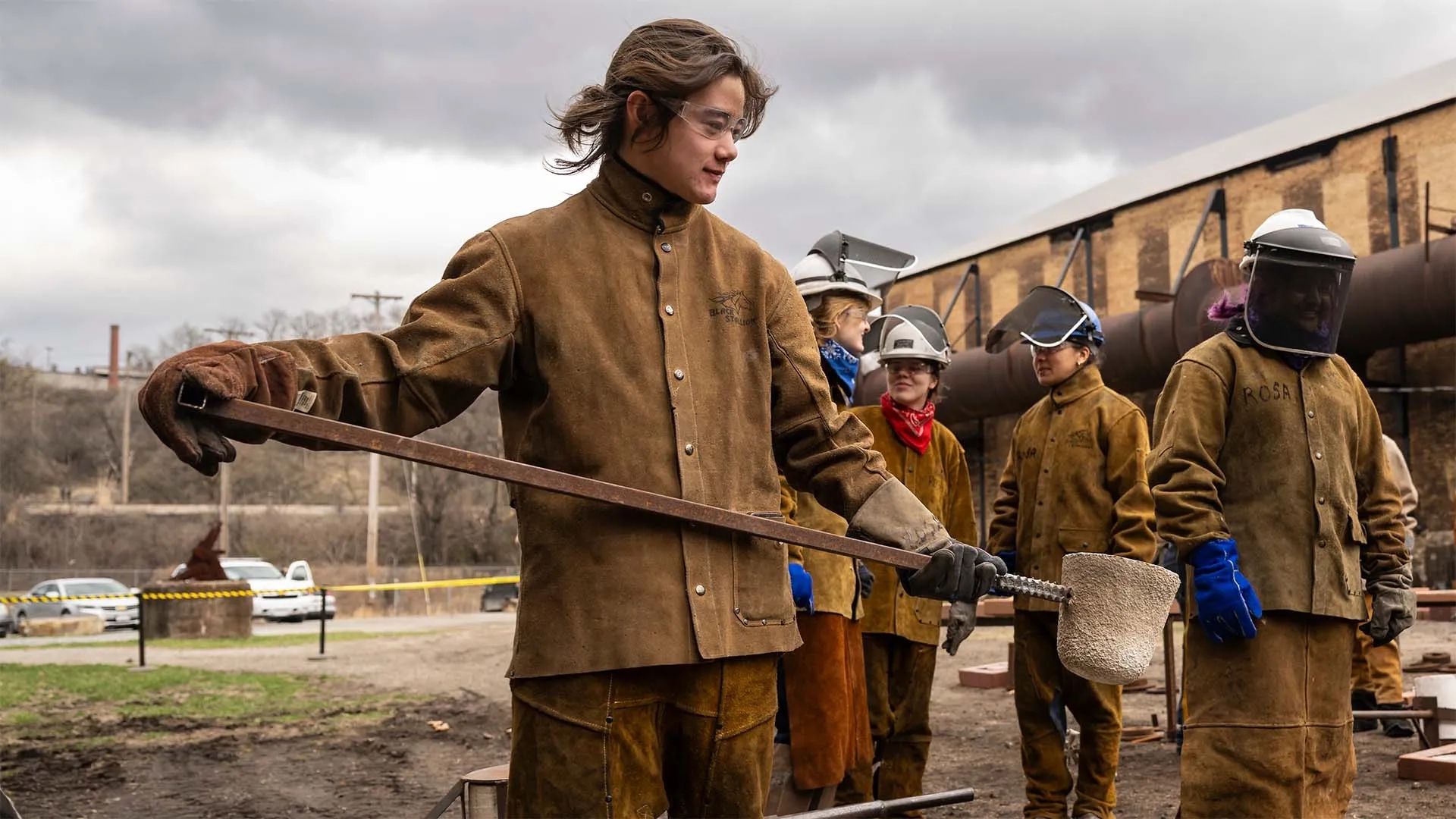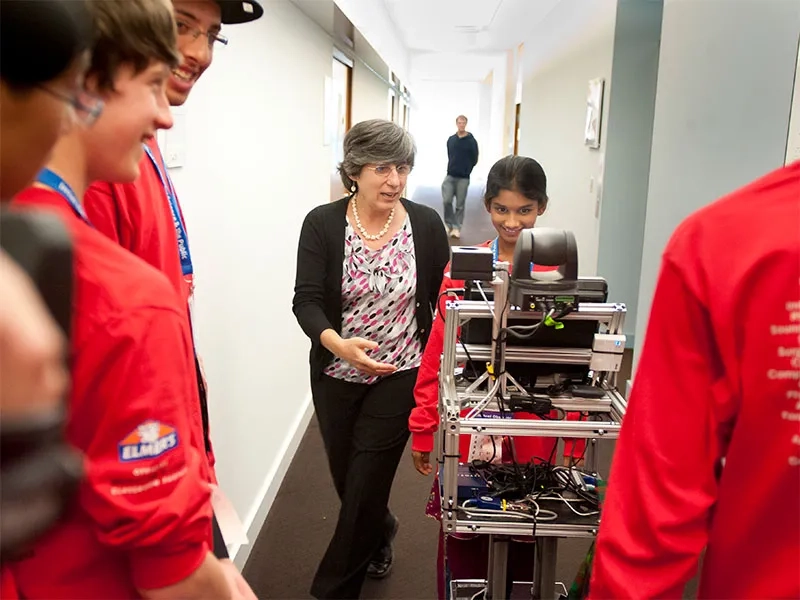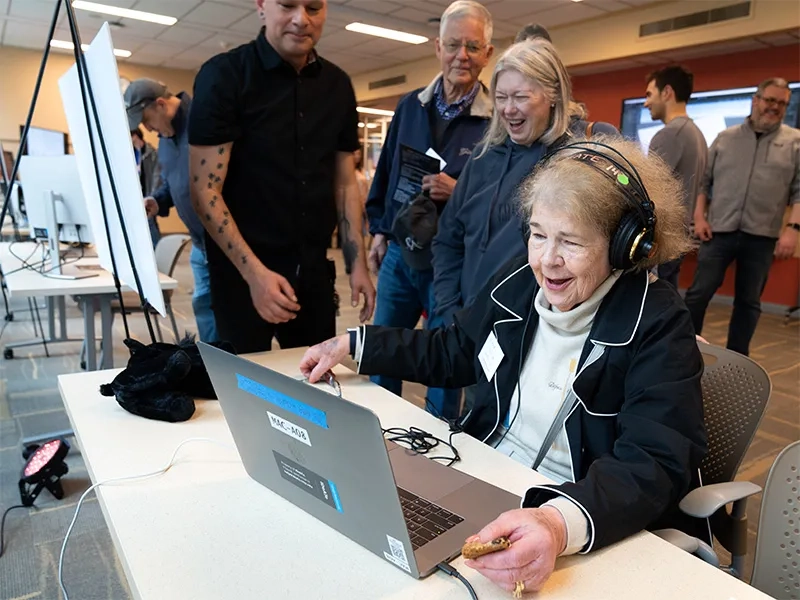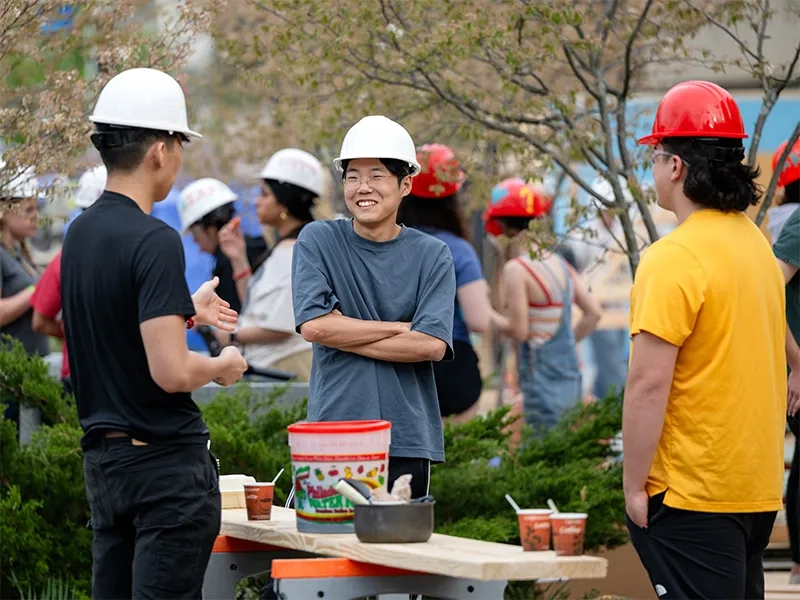
Shaped by Place, Driven by Progress

Supporting K–12 Education
Carnegie Mellon is deeply committed to supporting K–12 education, educators and students. This commitment includes hosting pre-college programs, summer camps and academies, free and accessible online learning and continuing education credits for teachers.
Each year, thousands of teachers and students utilize CMU resources. Our academic colleges and schools offer a wide range of programs and provide unique educational experiences to more than 10,000 K–12 students and teachers annually.
Learn more about many of CMU’s educational outreach initiatives by visiting the Leonard Gelfand Center for Service Learning and Outreach, visiting the Simon Initiative or browsing CMU’s various departments and programs, like the College of Engineering Outreach Program.

Research in Our Communities
Carnegie Mellon faculty, students and staff across every discipline are committed to partnering with the community to advance research that benefits our neighbors, near and far.
Carnegie Mellon University has more than 100 research centers and institutes, addressing a broad range of interests and industries. The links below showcase the centers where Carnegie Mellon students and faculty are working to solve real-world problems.
Our Office of Undergraduate Research and Scholar Development supports student research in every field of study and — through the Community-Based Research-to-Practice Program — funds 8–10 weeks of summer research for CMU undergraduates seeking to positively impact the Greater Pittsburgh Region community.

Community Programming
In addition to a variety of lectures and symposiums that are open to the public, Carnegie Mellon regularly offers programming that is low-cost or free and accessible to the broader community.
This programming spans everything from exhibits, festivals and film screenings to student performances, robotics demonstrations and live figure-drawing. It also includes faculty-led mini-courses through the Osher Institute on everything from financial literacy to folk dancing.
Faculty, Staff & Student Engagement
Community-Based Work Coalition
The Community-Based Work Coalition (CBWC) is a network of faculty and staff whose work intersects with the broader regional community. The coalition aims to establish a baseline understanding of the breadth of community-based work at the university, increase coordination between and connectivity with already-established efforts or partnerships and reduce potential duplication. Typically, the coalition meets monthly during the academic year, with meeting content driven by participants, with occasional topical discussions.
For faculty & staff only.
Staff Council
The chief purpose of the Staff Council is to examine matters related to all staff and to formulate recommendations to the university administration regarding staff concerns. Staff Council representatives provide advocacy on behalf of all staff members and contribute to the vibrancy and well-being of the entire Carnegie Mellon community.
For faculty & staff only.
Osher Lifelong Learning Institute
The Osher Lifelong Learning Institute at Carnegie Mellon University offers its members a wide range of courses taught by members, volunteers, CMU faculty, faculty from other regional colleges and universities and representatives from community organizations, all eager to share their expertise and engage in dialogue with their peers.
Student Civic Engagement
The Office of Student Leadership, Involvement, and Civic Engagement (SLICE) provides opportunities for students to connect with the CMU community outside of the classroom. Get involved in one of our large-scale civic engagement events or join one of the more than 40 civic engagement student organizations on campus.